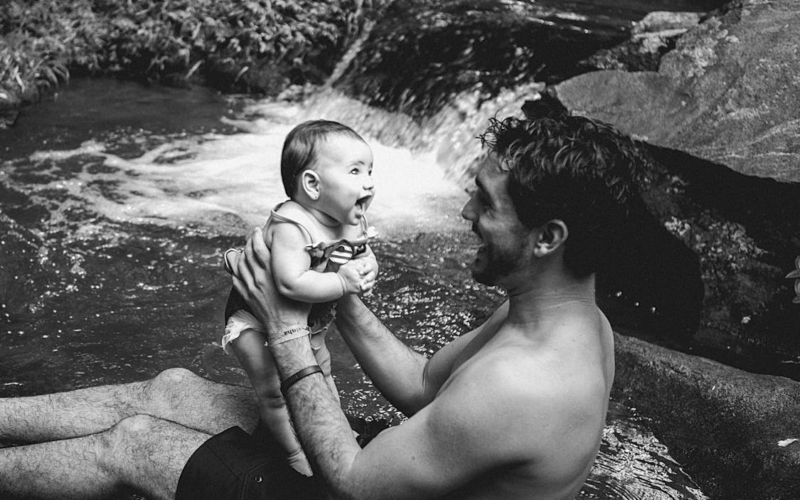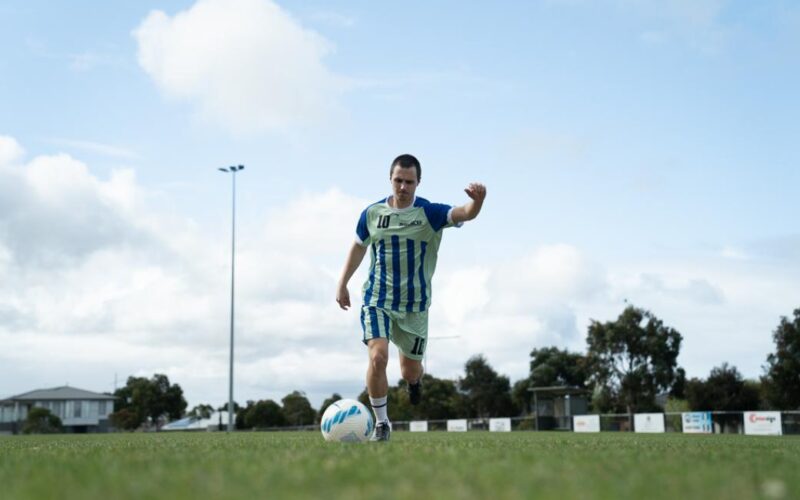
Teaching your baby to swim is a milestone to remember. For new parents, it can feel particularly confusing as to when the right ‘age’ is, and how to go about swimming in the safest way possible. We have all seen those terrifying videos of babies being thrown into pools by instructors and miraculously making their way to the top of the water effortlessly. If you want your baby to also adopt the life of a water baby, there are some key facts to keep in mind before diving into the deep end, pardon the pun.
When is the best time to start?
According to The Bump, babies can start swimming at any stage (as long as they were not born prematurely), but the 6-month mark is recommended. Interestingly, babies begin to develop their fear receptors around 8 months, so some experts even recommended getting them in the water before this point to reduce the level of distress and fear they may be subjected to. Swimming at an early age can support the development of their mobility, and inherently help them walk and perform better at swimming as they advance.
Always check with your paediatrician before going swimming with young babies to make sure there are no pre-existing issues that may worsen with swimming. A lot of moms also worry about eczema when taking their babies swimming, but soothing the area with barrier cream before putting them into a swimsuit can effectively keep the problem area safe.
How to get ready for their first splash
Prep is essential for their first splash. Here is a checklist of everything you should bring:
- Swim nappies
- Towels (one for you and baby)
- Rashguard
- Bath toys (unless you are taking them to a lesson, in which case they will be provided)
- Wetsuit (helps baby when feeling cold)
- Changing mats
- Warm clothing for after the lesson
You will likely have your essentials to bring along based on your baby, but these are the bare minimum items to bring to ensure the baby is safe and comfortable.
Finding the right class for you
It can be tough to find the right class for you and your baby. Not all swimming locations offer mum and baby swimming classes, so be sure to do your research in the local area. You might need to ask around which location family and friends have trusted in the past. It is always good to see the location before you book classes too, just to make sure everything is clean and to give you peace of mind.
What to expect from the first baby swimming class
For mom and baby swimming classes, there are a couple of things to expect. You will have more than enough time to get the baby used to the water at the start of the lesson with some splash time together. The teacher will instruct you on how to carry your baby through the water to encourage floating techniques. As they progress, the teachers will encourage basic skills such as kicking, going under the water, and more. The key to baby swimming is slow and steady. Getting them familiar with the environment will put everything else into place.
How to make the most of the lessons
Above all, it is important to make the most of the swimming lessons with your baby. After all, these are treasured memories between you and your child, so make the most of them and be as present as possible for them. If the swimming facility will allow you, you may want to engage in swimming lessons with both primary carers to build trust between all members of your immediate family.
- Focus on the fun – Swimming with your baby might be difficult at first, especially if they are showing clear signs of distress. Making the experience as fun as possible will help them associate swimming with playtime. Have their favourite toys to hand, and be engaged with your baby.
- Be patient – Your baby might not settle into swimming right away, and that’s okay! Patience and repetition are key, don’t give up so easily if your baby is not settling after their first lesson. Perhaps try them in a separate pool setting, and once calm, take them to a baby swim lesson with other little ones.
- Take breaks – Listen to your baby. If they have had a restless night and are kicking up a fuss at their lesson, it will be best to let them rest and come back to swimming when they are more themselves.
Getting them used to the water
Getting your baby used to water ahead of actual lessons can be easy. Bath times are a great way to familiarise them with water and kicking their legs. Also, if you have any family holidays coming up and a pool is at the location, spend some time taking them into the pool and having fun. Of course, make sure they are wearing enough sun cream and a sun hat!
Bottom line
New parents need not fear teaching their babies to swim. As long as your paediatrician has confirmed that your baby is in a healthy condition to start swimming, you can get them started right away. Make the experience fun for the two of you. Pack all of the baby gear we suggested, and of course, don’t forget your bikini sets and swimming trunks. You will look back on this time when they are a little older and more confident swimmers, thanking yourself for taking the plunge!





